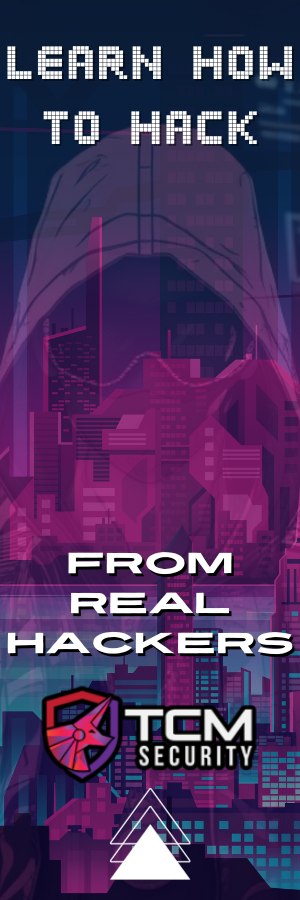Embarking on a career in Information Technology (IT) is akin to stepping into a realm of endless possibilities. The diversity of paths available can make the journey exhilarating yet perplexing. While there is no set path to kickstarting a career in IT, as evidenced by the varied experiences of professionals in the field, there are several fundamental skills and knowledge areas that can significantly bolster your starting point. In this comprehensive guide, we will delve into these fundamentals and explore the multifaceted routes available for entering the IT industry.
1. Educational Background
-
Formal Education: A degree in Computer Science, Information Technology, or a related field can provide a solid foundation. However, the IT industry is known for its inclusivity, welcoming individuals from diverse educational backgrounds who bring in a plethora of transferable skills.
-
Certifications: Industry-recognized certifications such as CompTIA A+, Network+, Security+, Cisco’s CCNA, and Microsoft’s MTA can be invaluable for beginners, offering a structured learning path and enhancing employability.
-
Online Courses and Bootcamps: The digital age has ushered in a plethora of online learning platforms like Coursera, Udemy, and edX, offering courses across the IT spectrum. Coding bootcamps, in particular, are intensive training programs focusing on programming and web development, designed to equip you with practical skills in a condensed timeframe.
2. Technical Skills
-
Programming Languages: Acquiring proficiency in languages like Python, Java, JavaScript, or C# is essential. Start with one that aligns with your interests and career goals, and gradually expand your repertoire.
-
Web Development: A foundational understanding of HTML, CSS, and JavaScript can be immensely beneficial, especially for roles related to website creation and maintenance.
-
Databases: Familiarizing yourself with SQL and database management systems like MySQL or MongoDB is crucial for managing and organizing data effectively.
-
Operating Systems: Proficiency in Windows, Linux, or MacOS is indispensable, as different IT roles may necessitate knowledge of one or more operating systems.
3. Soft Skills
-
Problem Solving: IT professionals often find themselves at the crossroads of unique challenges, necessitating the development of efficient and innovative solutions.
-
Communication: The ability to articulate ideas clearly and collaborate effectively with team members and stakeholders is paramount.
-
Adaptability: Given the ever-evolving nature of the IT landscape, staying adaptable, embracing change, and maintaining an insatiable appetite for learning are key.
4. Networking
-
Professional Networks: Platforms like LinkedIn serve as invaluable tools for connecting with IT professionals, joining relevant groups, and staying abreast of industry trends and opportunities.
-
Meetups and Conferences: Attending IT-related meetups, workshops, and conferences can facilitate learning from seasoned professionals and expanding your network.
-
Online Communities: Engaging in forums like Stack Overflow, Reddit, or Discord IT communities allows you to ask questions, share knowledge, and learn from the experiences of others.
5. Building a Portfolio
-
Personal Projects: Embarking on small projects or contributing to open-source initiatives can help you apply your skills, build a portfolio, and demonstrate your capabilities to potential employers.
-
GitHub: Platforms like GitHub serve as digital showcases for your work, allowing you to share your projects and collaborate with others.
-
Blogging: Documenting your learning journey, insights, projects, or explorations into IT topics through blogging can demonstrate your passion, knowledge, and commitment to the field.
6. Internships and Entry-Level Positions
-
Seeking Opportunities: Actively seeking and applying for internships or entry-level positions is a pragmatic approach to gaining hands-on experience and understanding the practical applications of your skills.
-
Leveraging Connections: Utilizing your network to uncover opportunities, seek advice, and obtain referrals can significantly enhance your chances of securing a position.
-
Freelancing: Freelancing platforms like Upwork and Freelancer offer a flexible way to work on diverse projects, build your portfolio, and gain invaluable experience.
7. Specialization
-
Identifying Your Niche: The IT field is vast, encompassing areas like cybersecurity, network administration, software development, data analysis, and more. Exploring different domains and identifying what resonates with you is pivotal for carving out a fulfilling career.
-
Advanced Certifications and Degrees: Once you’ve identified your niche, pursuing advanced certifications or degrees can deepen your expertise and set you apart in the competitive job market.
8. Staying Updated and Continuous Learning
-
Industry News and Trends: Regularly following industry blogs, news websites, and subscribing to relevant newsletters will keep you informed about the latest developments, emerging technologies, and trends in IT.
-
Online Forums and Social Media: Participating in discussions on platforms like Twitter, Reddit, and specialized IT forums can provide insights into real-world challenges, solutions, and the experiences of other IT professionals.
-
Webinars and Workshops: Attending webinars and workshops hosted by industry experts, tech companies, and educational institutions can deepen your understanding of specific topics and expose you to practical applications and case studies.
9. Mentorship and Guidance
-
Seeking a Mentor: Finding a mentor who has experience in your area of interest can provide guidance, advice, and support as you navigate the complexities of starting a career in IT.
-
Peer Collaboration: Collaborating with peers, sharing knowledge, and working on projects together can enhance your learning experience and help you build valuable relationships within the industry.
-
Feedback and Reflection: Regularly seeking feedback on your work and reflecting on your progress and learning experiences can help you identify areas for improvement and guide your future learning efforts.
10. Building a Personal Brand
-
Online Presence: Establishing a strong online presence through LinkedIn, a personal website, or a blog can help you showcase your skills, achievements, and projects to potential employers and collaborators.
-
Contributing to the Community: Sharing your knowledge by contributing to online forums, writing articles, or giving talks at local meetups can help you build a reputation in the IT community and establish yourself as a thought leader in your area of specialization.
-
Networking and Outreach: Proactively reaching out to professionals in your field, participating in community events, and joining professional organizations can expand your network and open up opportunities for collaboration, learning, and career advancement.
11. Balancing Theory and Practice
-
Hands-On Experience: While theoretical knowledge is important, gaining hands-on experience through internships, projects, and real-world applications is crucial for developing practical skills and understanding how to solve problems effectively.
-
Case Studies and Scenarios: Studying case studies and working through practical scenarios can help you understand how theoretical concepts are applied in real-world situations and how different technologies and methodologies are used to address challenges in IT.
12. Setting Clear Goals and Planning
-
Career Goals: Defining clear, achievable career goals and creating a roadmap to reach them can help you stay focused, motivated, and make informed decisions about your learning and career development.
-
Skill Development Plan: Identifying the skills and knowledge you need to develop and creating a structured plan to acquire them can help you progress systematically and efficiently.
-
Regular Review and Adjustment: Periodically reviewing your goals and plans, and adjusting them based on your progress, feedback, and changes in your interests or the industry can help you stay on track and adapt to evolving requirements and opportunities.
Embarking on a career in IT is an exciting and rewarding journey, characterized by continuous learning, adaptability, and the pursuit of passion. While the paths are diverse, focusing on fundamentals, building a strong foundation, and leveraging available resources can significantly enhance your prospects in this dynamic field. Stay curious, be proactive, and remember that in the world of IT, your unique journey is not just welcomed, but celebrated. The multifaceted nature of the field means there is a place for everyone, and the possibilities are truly limitless.


